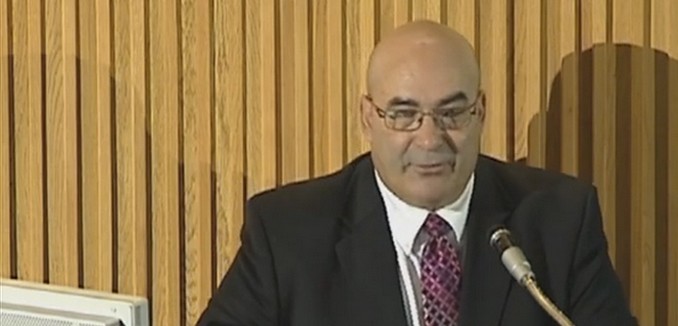A group of award-winning professors affiliated with the American Studies Association (ASA) are suing the organization to oppose its boycott of Israel, saying that the boycott violates the ASA’s charter as well as laws governing non-profit organizations.
The professors tried to resolve the issue internally, but are filing suit “as a last resort to return the ASA to the academically-focused organization it has been for 60 years,” the Louis D. Brandeis Center, a non-profit organization whose president is one of the attorneys on the case, said in a statement.
The four plaintiffs include a member of the ASA’s governing council and two winners of awards from the organization.
According to its constitution, the ASA exists for “the promotion of the study of American culture through the encouragement of research, teaching, publication…about American culture in all its diversity and complexity.” Boycotting Israel, or any other country, “is outside the scope of ASA’s charter and is the antithesis of promoting knowledge,” the Brandeis Center said. Additionally, organization’s constitution states as one of its goals is the “the strengthening of relations among persons and institutions in this country and abroad devoted to such studies”—which seems to contradict boycotting Israeli scholars.
The boycott may also violate the ASA’s tax-exempt status. The ASA’s official filings with the IRS say that its “exempt purpose [is] – advancing the Study of American Culture.” Boycotting Israel falls outside of this description, the suit alleges. And by exceeding the scope of its mission, the ASA may be in violation of the D.C. Non-Profit Corporation Act, which requires organizations to operate within the provisions of their charters.
The ASA’s boycott has proved controversial within the organization, as many members have resigned, stopped donating, and refused to honor the boycott in protest. The ASA was also condemned by the American Association of University Professors and 134 members of Congress.
The boycott “appears to be a clear example of a small group misappropriating assets raised for an agreed upon purpose and illegally using the organization to advance a completely separate and personal agenda,” Steven Davidoff Solomon, a corporate law professor at the University of California—Berkeley who is advising the plaintiffs, said in a statement. “To be clear, this is not about silencing or stopping criticism of Israel, or in any way discouraging it,” added Northwestern University Law School professor Eugene Kontorovich, who is also advising the plaintiffs. “It is about non-profit corporations abiding by their own rules.”
Solomon and Kontorovich argued in a Wall Street Journal op-ed last December that similar boycotts often violate the organization’s charters. The point of charters is to “protect the overwhelming mass of members who cannot get involved in the minutiae of the organization’s affairs, to ensure that the organization cannot be hijacked for a fundamentally foreign purpose, and to protect minority members,” they wrote. If members of associations wish to go beyond the provisions of the charter, they have the freedom to create new groups but may not “commandeer organizations that already exist.”
In October 2014, the ASA was forced to largely mitigate its boycott its annual meeting in Los Angeles out of concern that the boycott may have violated California’s anti-discrimination laws. But the boycott still exists in the eyes of the organization—something ASA members are now fighting in court.
[Photo: LibraryOfCongress / YouTube ]




